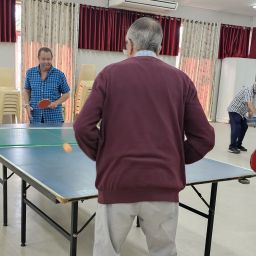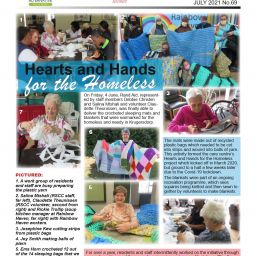Dementia affects many lives, and it calls for patience, clear communication and supportive environments.
“People with dementia may not always remember what you say, but they will remember how you made them feel. When they sense safety, love and patience, their anxiety eases,” says Karen Griessel, a social worker at Rand Aid’s Thornhill Manor retirement village.
Dementia and cognitive decline bring not only medical challenges, but also deep psychological and social ones. “As memory and decision-making abilities decline, residents often experience confusion, frustration and heightened anxiety, particularly when routines or environments change,” she explains.
The condition can also carry stigma. “Feelings of shame may cause residents to withdraw from communal life, while peers sometimes struggle to cope with behavioural or communication changes. This can lead to isolation and a diminished sense of belonging,” says Karen. Families also face distress as they balance the emotional impact of watching a loved one decline with the practical realities of care.
Karen notes that dementia is not only a clinical condition but also a profound psychosocial challenge that reshapes the daily life of both residents and their communities. Even with the difficulties dementia brings, it is possible to build settings that maintain dignity and encourage social connection.
Support for caregivers
A dementia support group for caregivers and family members has been running for about 14 years, facilitated by registered counsellor Lorna Quinn. The group offers a safe space to share experiences, gain information and feel less isolated. Meetings take place on the second Saturday of each month at 9:30am at the Elphin Lodge clubhouse, followed by refreshments. For details, contact Lorna on 082 456 5692.
















